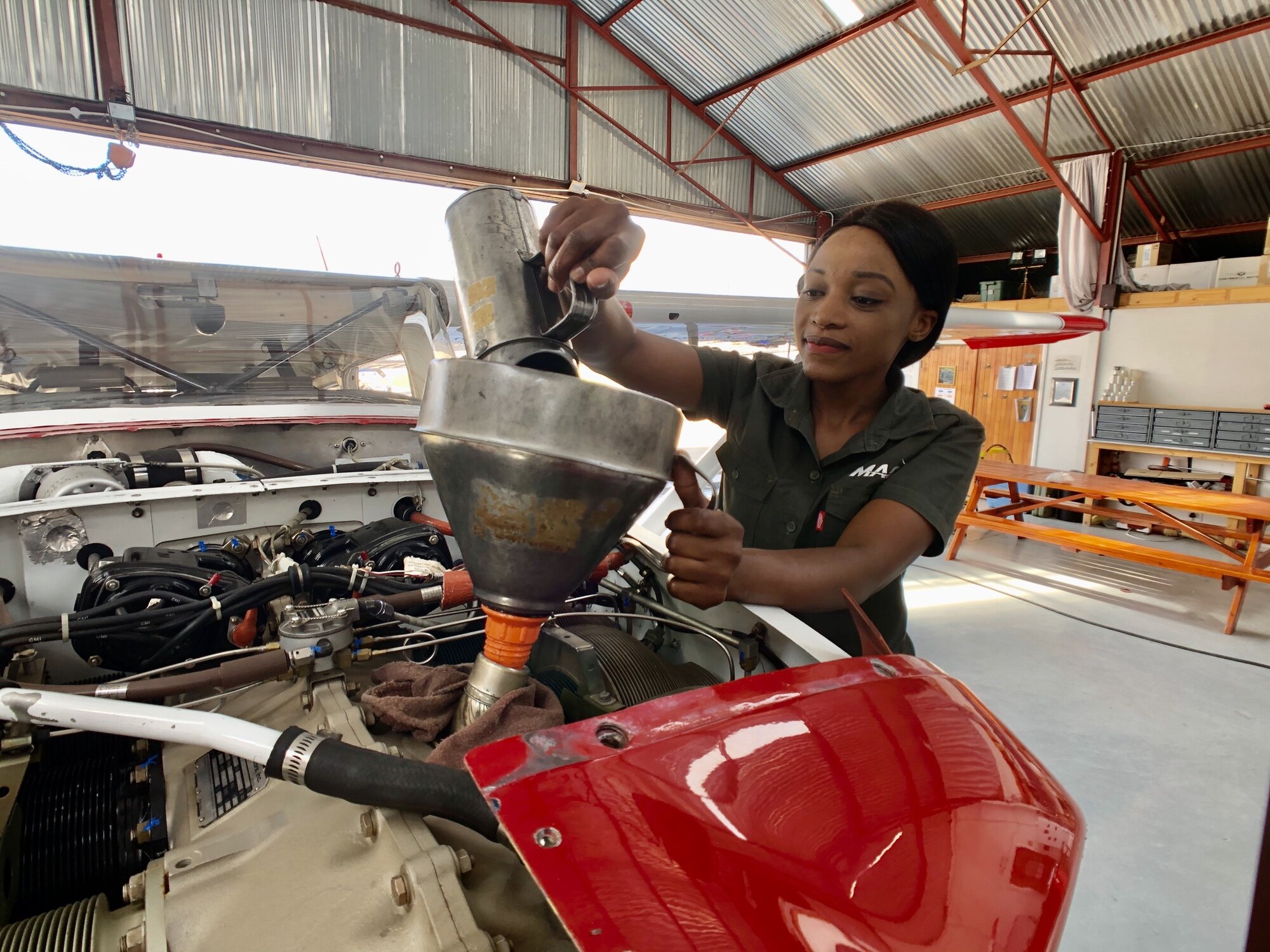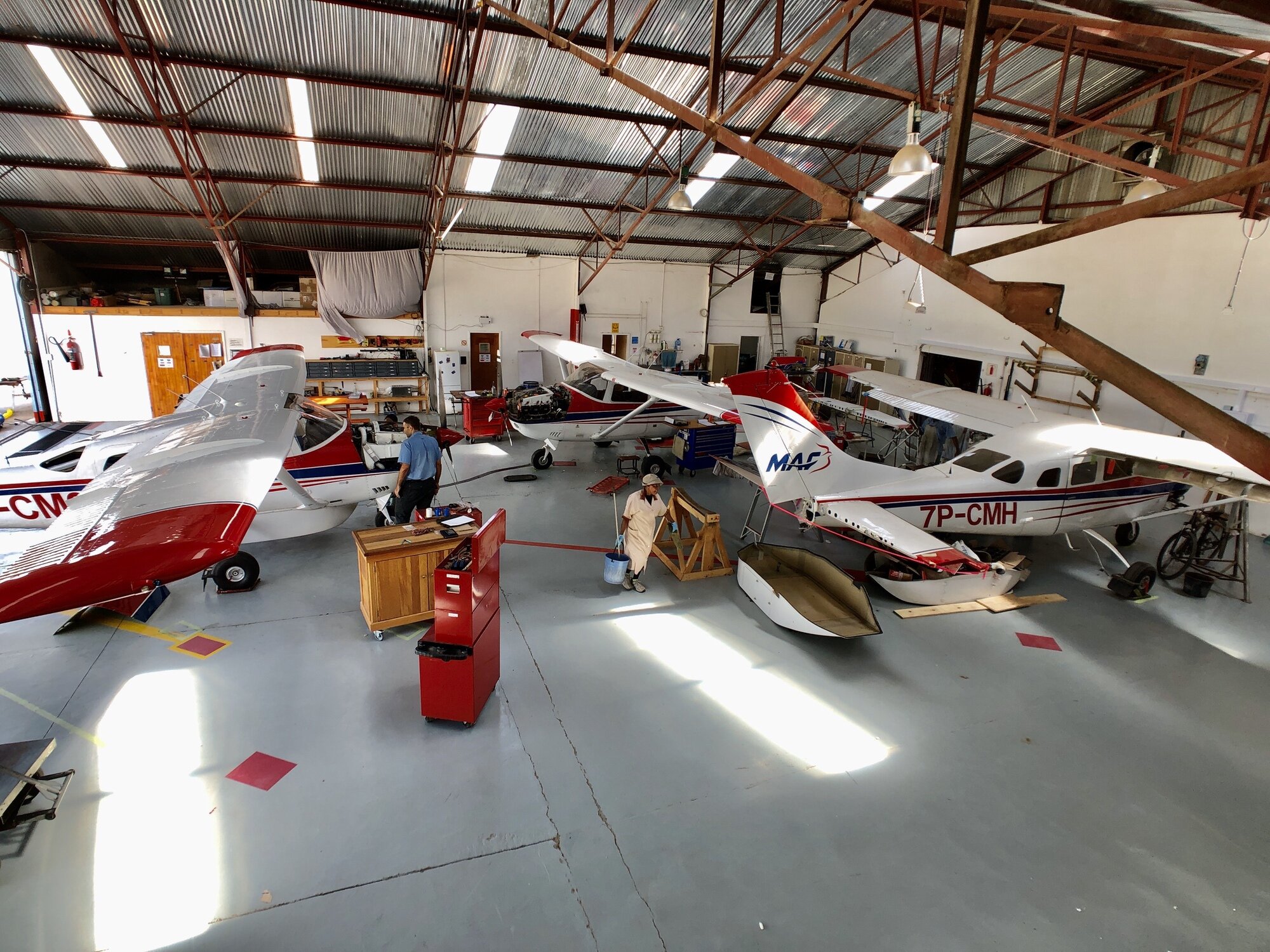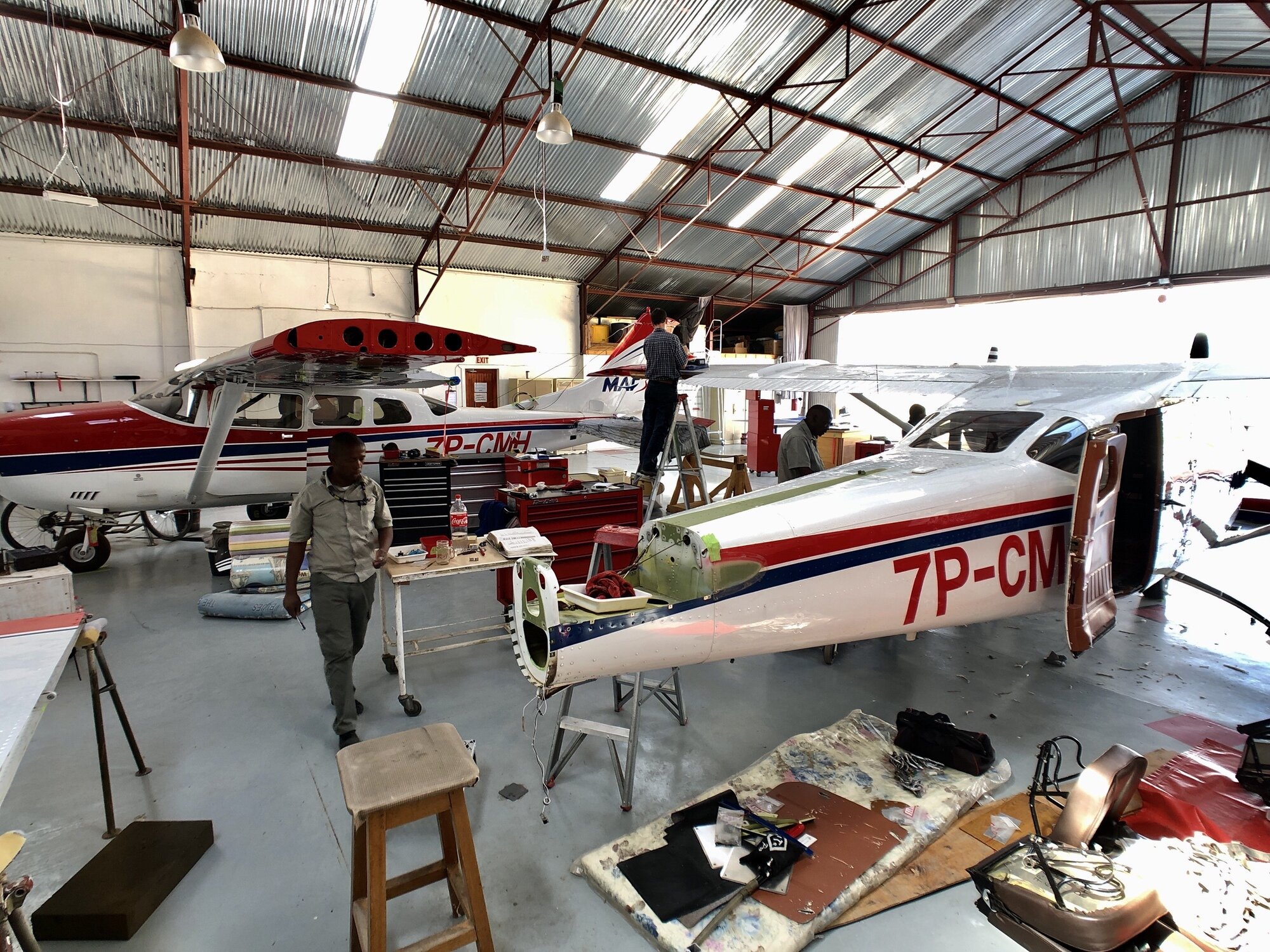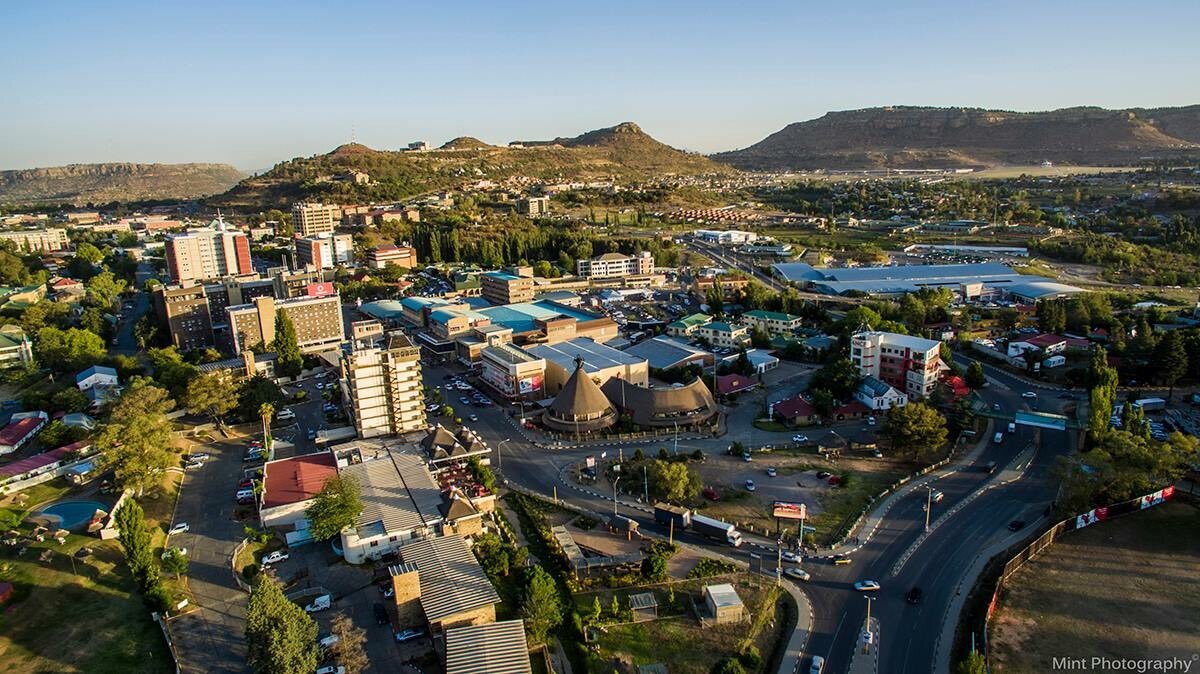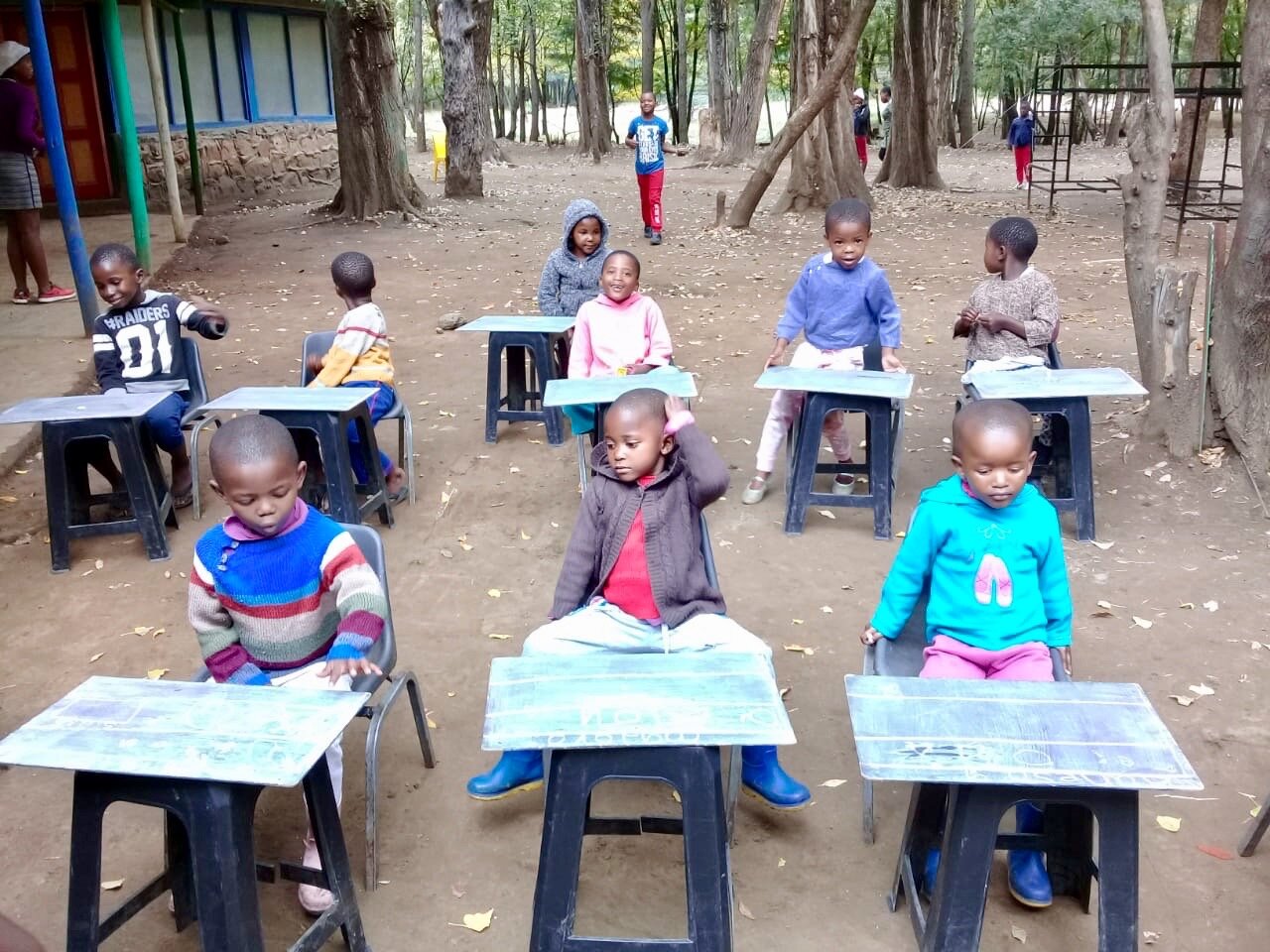I made a video for a Youtube channel I am calling ‘Mountain Mode.’ It’s about gear and tech used while flying in the environments we fly. A bit of fun. Check it our here, and be sure to subscribe on Youtube.
Lesotho, MAF, PCC and us in a COVID-19 world
Lesotho
Stock image of Maseru downtown.
A weeks ago, Lesotho followed South Africa’s lead in going into a full lockdown: grocery stores are only open 8-11am daily, movement outside of that time is restricted and limited to essential service personnel, and the borders are closed. The police and military are enforcing this, at least in the city, towns and bigger villages. As a result, people are forced to take it seriously. The medical sector in Lesotho is always under pressure: Lesotho has one of the highest prevalences of HIV worldwide. It is also a rural country with isolated communities and small basic health care clinics scattered throughout the country, along with a few district hospitals. The doctors and nurses work hard, but with limited equipment and supplies, it’s tough under normal circumstances. With that as a starting point, adding COVID-19 into the mix is certainly going to be challenging. If developed counties are struggling with this, we anticipate Lesotho will also be under intense pressure in the months to come. As testing is very slow and sporadic, there are still no confirmed cases of COVID-19 in the country. However, we are not disillusioned into thinking that is an accurate representation of the situation. We assume it is among us and are following operating procedures already implemented in other countries. Lesotho will remain on lockdown until the 21 April, and then probably reassess and follow the lead of our neighboring South Africa.
MAF
Med evac flight for a maternity patient.
A few weeks ago, MAF Lesotho sent home any staff who were high-risk. A few days later, our manager extended that to non-essential staff. At that point, 2 pilots (myself being one of them) were sent home to work from there and be on-call for emergency flights. That way, we were not interacting with the mechanic team who was needed at work to get airplanes out of maintenance and ready to go. So, for about 2 weeks I have been working from home, and alternating being on-call with the other pilot. As of 2 days ago, the mechanic team is now also at home, having prepared the airplanes for the foreseeable future. MAF here is part of Lesotho’s rural healthcare system, and we are trying hard to find balance between supporting it as best we can, and not wanting to bring harm to the isolated communities by taking infected people from the city to the mountains. For our team, it’s a daily balancing act as we continually reassess the risk of doing harm with the benefit of supporting the normal day-to-day primary healthcare needs. When we do fly, we take every precaution to ensure we are not spreading COVID-19. The planes are disinfected after every flight, the pilots wear PPE, and the rare cases where we take nurses out to the mountains, they are screened as best we can to ensure they are not sick. In order for us to balance the risk and benefit, at this stage we are only doing emergency flights. This at least helps those most in need, and lessens the risk of us taking COVID-19 to the mountains. These flights are probably still 80% related to maternity cases, either pregnant ladies needing to be flown to a more equipped hospital, or mothers in need of emergency care after giving birth. As the situation develops in Lesotho, MAF will reassess how we can best assist, and adjust our flying accordingly.
PCC
Pre school social distancing.
While PCC has the advantage of being remote, it is at a disadvantage when it comes to healthcare facilities. Emily has been doing a great job trying to take the new normal precautions the world is used to (washing hands, social distancing, etc) and explaining them to the staff in a way that will work in their very different environment, where we have 66 kids living together. The staff stepped-up to the challenge, finding a way to keep the boys and girls apart, doing school work outside at desks that are well separated, and by sending high-risk staff home and finding a few temporary replacements. We told the staff, as strictly as we could, that we didn't want them traveling on taxis, and so during this time, they have our truck which can be used on the bad dirt road to get to town as needed. We have been doing what we can to prepare PCC, educating and planning ahead, and we hope to keep revising and updating procedures. We have been encouraged to see people taking charge and empowering themselves: in a community where running water isn't the norm, and regular handwashing isn't usually possible, one of our staff members has taken the Tippy Tap plans we sent, and made one for her home, so that her family can put into practice some of these new hygiene essentials.
Us
Home school coloring. Current obsession: Lion Guard.
Every few days I get called out on a flight. On Sunday I had 2 patients who needed transfer. The first was a lady from a small village, who needed to get to the district hospital before having her baby. She was stable, and the short flight for her was only about 10 minutes. The other patient was a mother who had given birth the night before and had lost a lot of blood. She was on a stretcher while a nurse cared for the newborn. I collected them from a bigger town, Thaba Tseka, loaded-up mother, nurse, baby and paramedic, and flew them to Maseru where an ambulance was waiting. I was grateful to be able to do something to help. On days when I am not flying, I am at home doing computer-based work, often related to improving our safety system or developing training tools. Jane is of course home from school, and is keeping busy doing homeschool activities. Emily is doing a great job of leading Jane’s schoolwork, and is balancing her time between that and keeping tabs on PCC, as well as keeping our household running. Like the rest of the world, we are finding it tough to not be able to go out, see friends, and do normal life kinds of things. Shopping has become a big deal. As the stores are only open for 3 hours a day, it has the effect of making those 3 hours very busy and congested (a detail that frustrates me and is so counterproductive to the whole idea of a lockdown). We are going as little as possible, but sometimes you just need to restock. Emily went yesterday and waited in long lines just to get into the busy store. Thankfully the shop was doing an effective job of maintaining sufficient stock in this bizarre shopping environment. While the lines and changes can be overwhelming, we find that people are still looking out for one another and treating each other with gentle respect in the shops.
We are trying to adapt, and settle into a new normal. We don't foresee this situation improving suddenly, and so we are getting ready to be living life like this for a while. We hope to keep doing what we can at MAF to support the country’s healthcare system, and at PCC to protect and look after the kids and staff. At some point, we just need to accept, adapt, and set our sights on being part of the solution and healing of this country and world.
Nothing else we would rather be doing
“I phoned them this morning, and again before we left, and they assured me the ambulance would be here. Now my patients must wait here for them!”
The nurse said this to me, apologetically more than angrily. His day had already been a long one, and it was only midday.
“I will just have to go and fetch a taxi and pay for it myself, otherwise these patients will never get there.”
Wednesday, March 11, was a public holiday in Lesotho. I was on call for any emergency flights. At 8:30 a call came in. A pretty standard request: Go to Lebakeng, pick up a pregnant lady on a stretcher, as well as an old lady with a broken leg, and transport them to Qachas Nek, where the district hospital was.
Within 45 minutes of getting the call, I had left home, preflighted the aircraft and was taking-off. Another 30 or so minutes later, I landed at Lebakeng.
The nurse, Mr Karabo, came running to the plane. “We are very sorry. In the time since we called you, the baby was born and needed to be resuscitated. Would you mind waiting maybe 30 minutes for us to stabilize him before you fly them to Qachas Nek?”
"Of course!” was my answer. As far as I was concerned, they could take all the time they needed. I was there for them, not the other way around.
The maternity ward at the clinic
I made sure the plane was good to go, then I wandered around waiting for a bit. I went to the maternity ward to see how things were going. Karabo saw me and said, laughing ‘You don’t want to go in THAT door!’ Pointing to the one that had the sound of a crying baby behind it. Fair enough. I am confident I don’t need to see that side of health care.
The patient with the broken leg waiting in the plane
Karabo briefed me on the second patient. The lady with the broken leg. She was wheeled to the airplane in the meantime, on a wheelchair with a wheel that looked like a bent hula hoop after a few months of playground use. I don’t know how the ‘wheel’ chair was even able to roll. But nevertheless, the lady was loaded, and strapped in, while we waited for the mother and child.
I never learned what the complication was, and have learnt that such information isn’t very important to the everyday person in Lesotho, so I didn’t ask. All I needed to know was that they needed better medical care than the rural clinic could provide.
What was probably 30 minutes later, Karabo came back, full of smiles. “Here are their bags. Sorry for the wait. They will be here soon. Oh, and my apologies, she can sit and wont need the stretcher.”
I reconfigured the seating area of the plane, and a few minutes later the mother, child, and another nurse came to the airplane, everyone walking along smiling like it was a normal occurrence.
Once they were loaded up, with Karabo on board to assist the patient handover at the district hospital, we got going.
Qachas Nek airport
Lebakeng to Qachas Nek is about an 8 minute flight. Karabo explained to me that the bridge had recently been washed away, and now their only means of transport, besides walking, was airplane. This, combined with a recent lack of funds from the government to provide the regular flight schedule, meant that he had been on duty for 2 months, with no sign of a shift change any time soon. He said he was not willing to leave his patients and go home, so he had no choice but to keep working and wait on regular flights for medical staff to resume.
Even waiting on an ambulance wasn’t a big enough deal to stop this new mom smiling
We landed at Qacha’s Nek, to find no ambulance waiting.
‘These guys!’ Karabo said irritated.
‘Africa!’ He said again, which made me smile. ‘Even time management is a problem.’
After a few calls to try and get the status of the ambulance, he finally told me that the only way would be for him to flag down a 4+1 (the local slang for a taxi car), and pay for them to get to the hospital.
‘Well, I am happy to wait as long as you need,’ I told him.
‘I better go with, because I need to make sure these patients are not neglected.’ He answered.
I was happy to hang out at Qacha’s Nek for 30 minutes more: Drone time! Any excuse I can get to send up the drone and get nice pictures is an opportunity I take!
When Karabo returned in the taxi, the drone was hovering close by. With all stress now relieved, as the patients were safe, he laughed and said to me ‘Ah, this thing! It's technology gone too far! Amazing.’
After loading him up, I flew him the 8 minutes back to Lebakeng.
On final approach, I noticed a blob on the touchdown zone that wasn’t usually there. Sure enough, as I got closer, the baby donkey that was the blob raised its head, annoyed that I should want to land right where he was snoozing.
Landing aborts are not uncommon here. So the procedure comes pretty easily. Maximum power, clean up flaps, open cowl flaps, and climb away, following the airstrip specific abort path.
As I circled overhead, I saw a shepherd running to chase the doneky.
My next approach was donkey-free, and after shut down Karabo said ‘sometimes I wonder why I do this! Everyday is a matter of life and death.’ Of course, he said this with a smile, both of us silently knowing there is nothing we would rather be doing.
The Hanger
As a pilot, my focus is on whats ‘out there,’ in the mountains. The hanger is the place I return to. But I sometimes forget just how much work goes on here that is critical for the safe and efficient functioning of MAF Lesotho. Today I just very quickly walked around and took a few pics of the current happenings: A major inspection on CME, an oil change inspection on CMO. Usually, in between drilling and riveting sounds, you will hear jokes and laughter from the Basotho mechanics working alongside the USA pilot/mechanics. A wonderful community of friends and skilled workers.

